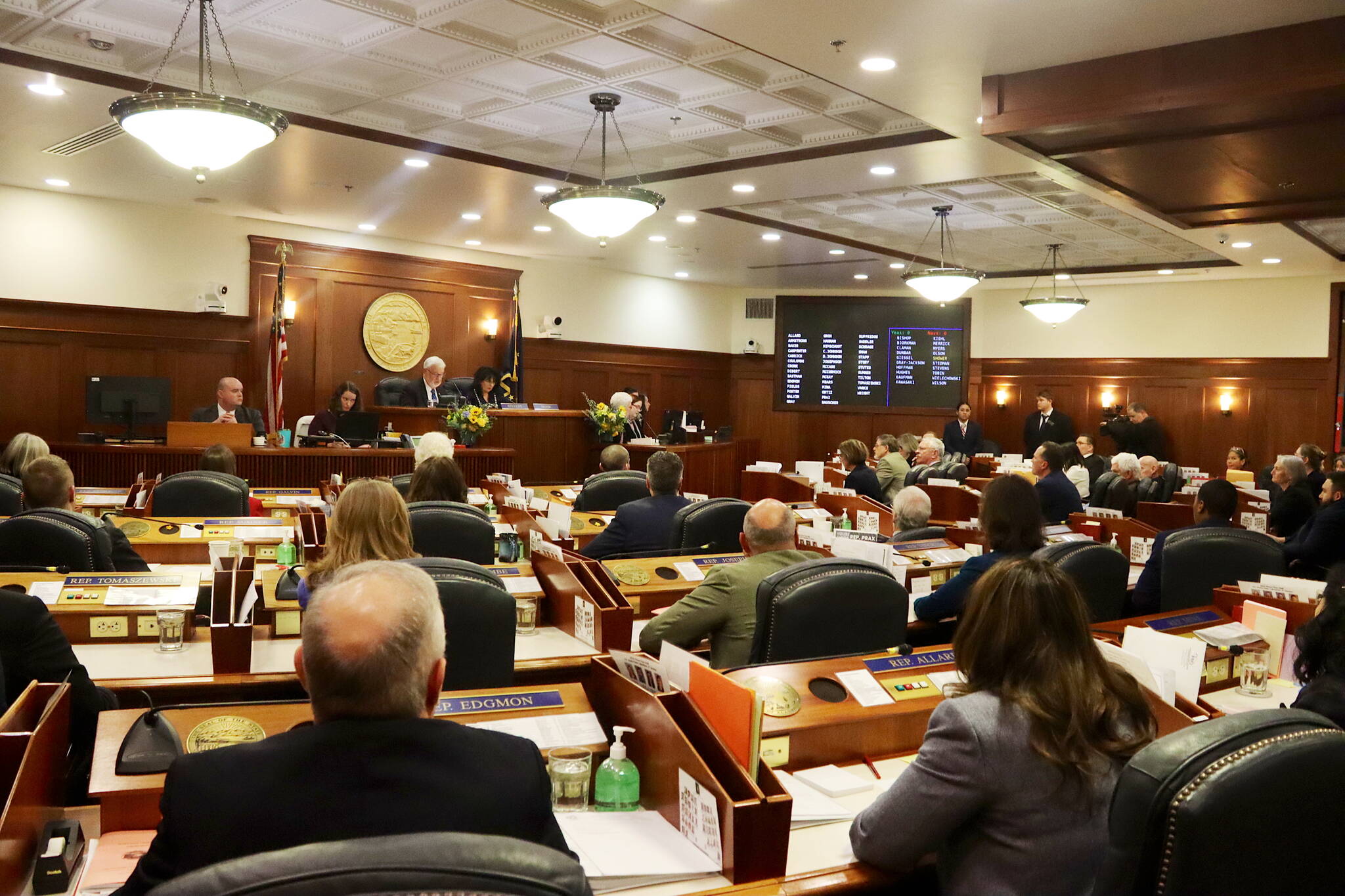A joint session of the Alaska Legislature failed by a 33-26 vote Thursday night to override Gov. Mike Dunleavy’s veto of part of an education funding increase for the current fiscal year.
House Speaker Cathy Tilton, a Wasilla Republican, said a few hours before the vote the session was scheduled on short notice due to concerns among some members about the strict meaning of language in the Alaska Constitution regarding special sessions, even though there weren’t enough votes to meet the three-fourths requirement in the 60-member Legislature to override the veto.
The veto affects about $87.5 million, or $340 per student, which was half of a one-time increase passed by the Legislature last year.
Three “Bush Caucus” members of the House Republican-led majority — Bryce Edgmon, a Dillingham independent, CJ McCormick, a Bethel Democrat, and Neal Foster, a Nome Democrat — voted with the mostly Democratic minority caucus to override the veto, resulting in a 19-21 tally.
In the Senate, bipartisan majority members David Wilson of Fairbanks, Jesse Bjorkman of Nikiski and James Kaufman of Anchorage — all Republicans — joined two minority caucus members for a 14-5 vote in favor. A third minority caucus member, Mike Shower, a Wasilla Republican, was absent.
All three of Juneau’s Democratic legislators voted in favor of the override.
The veto affects about $87.5 million, or $340 per student, which was half of a one-time increase passed by the Legislature last year.
The phrase that sparked hours of discussions among lawmakers, lawyers and others at the Capitol on Thursday was that the Legislature “shall” meet to take up vetoes during the first five days of the session, rather than “may.” Previous legislatures have not interpreted the clause as a mandate for override sessions.
“We’ll be going in to fulfill a constitutional obligation, but not necessarily doing any kind of an override because at this point as far as I know from polling there are not 45 votes,” Tilton told reporters after the joint session was scheduled.
Tilton said she didn’t know if future legislatures would see the decision as mandating joint override sessions, or if anyone might challenge past legislatures for allegedly violating the constitution.
“This is new territory,” she said. “We are setting new precedents all the time, so we’ll see. I mean the other precedent is we have a 33-(session) track record, but this is a new one and we’ll see how it goes. I can’t really tell you what it will look like in the future.”
The House on Tuesday rejected a veto override session by a 20-20 vote. But a legal memo from the nonpartisan Legislative Affairs Agency that was cited during Thursday morning’s floor session by Rep. Andy Josephson, an Anchorage Democrat who had implored members to reconsider their decision about a joint session, stated the clause “the legislature is constitutionally required to meet in joint session to consider a veto” could be binding despite past precedent. That resulted in the hours-long series of meetings before the joint session was called.
Josephson, after the vote, said the override session achieved meaningful goals despite falling far short of passing.
“For the public there was a clamor for sure to know where people stood on this override vote,” he said. “The House minority fought for that and we won that privilege. And some would say it’s a constitutional requirement and we forced people to say yea or nay on this important question, and they’ll have to confer with their constituents to see what they think about their yeses and nos.”
The possibility of creating a precedent where all legislatures will have to meet for such sessions isn’t much of a concern, Josephson said.
“Normally there won’t be so many vetoes with most administrations and I don’t fear having these discussions,” he said.
Education funding for the coming year and beyond has emerged as the dominant issue of the first week of the session. Dunleavy and the House majority are pushing for a variety of measures including boosts to charter schools and homeschooling, while the bipartisan Senate majority and House minority are making an increase in the per-student formula for public schools their top priority.
• Contact Mark Sabbatini at mark.sabbatini@juneauempire.com or (907) 957-2306.

